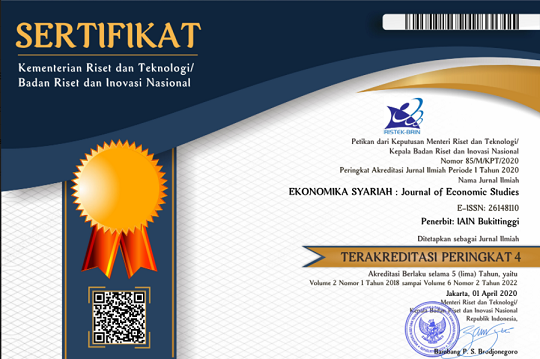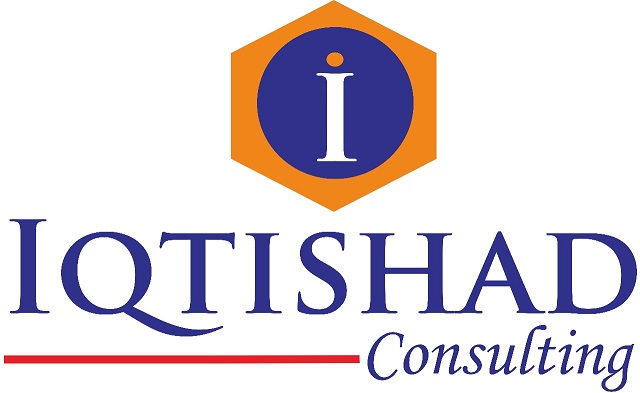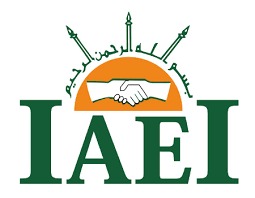Halal Certification Issues-Solutions in Indonesia: An Exploratory Study
DOI:
https://doi.org/10.30983/es.v9i1.9163Keywords:
Halal Certification, MSMEs, IndonesiaAbstract
This study aims to explore the problems and formulate solutions related to the implementation of halal certification for MSMEs in Indonesia. Employing a qualitative content analysis approach, ten articles published between 2019 and 2024 were analyzed using a mind map chart to identify key issues and integrated solutions. The findings highlight five major areas of concern: regulations, business actors, support systems, implementation processes, and public outreach. Key challenges include an underdeveloped legal structure, high certification costs, low awareness among business actors, and inadequate infrastructure and support. Proposed solutions involve offering free halal certification, enhancing outreach efforts, digitizing the certification system, strengthening institutional support, and providing technical assistance. This research offers a comprehensive mapping of problems and solutions, an approach not previously undertaken. It underscores the need for synergy between the government, support institutions, and MSMEs to build a more inclusive and effective halal certification ecosystem in Indonesia.
Penelitian ini bertujuan untuk mengeksplorasi problematika dan merumuskan solusi dalam pelaksanaan sertifikasi halal bagi pelaku UMKM di Indonesia. Dengan pendekatan analisis konten kualitatif, 10 artikel terpilih dari tahun 2019-2024 dianalisis menggunakan alat pemetaan mind maps chart untuk mengidentifikasi tantangan utama dan solusi yang terintegrasi. Hasil penelitian mengungkapkan lima aspek problematika utama: regulasi, pelaku usaha, sistem pendukung, implementasi, dan sosialisasi. Tantangan meliputi ketidaksiapan struktur hukum, biaya yang memberatkan, rendahnya kesadaran pelaku usaha, serta keterbatasan infrastruktur dan pendampingan. Solusi yang diusulkan meliputi program sertifikasi halal gratis, peningkatan sosialisasi, digitalisasi sistem, penguatan dukungan kelembagaan, dan pendampingan teknis. Penelitian ini berkontribusi dengan menyajikan pemetaan komprehensif problematika dan solusi tentang pelaksanaan sertifikasi halal bagi pelaku UMKM di Indonesia. Dalam implikasinya diperlukan sinergi antara pemerintah, lembaga pendukung, dan UMKM untuk menciptakan ekosistem sertifikasi halal yang lebih inklusif dan efisien di Indonesia.
References
Abdul Halim, N. R., Mutalib, S. A., Abd Ghani, M., & Hashim, H. (2024). Non-conformance report (NCR) on Malaysia halal certification: A case study among small-medium scale food enterprises (SMEs) in Malaysia. Food Control, 160, 110298. https://doi.org/https://doi.org/10.1016/j.foodcont.2024.110298
Amini, S., Tarigan, A. A., Syahriza, R., & Ismail, I. (2024). Homo Islamicus as an agent of socio-economic change: A study in the perspective of Surah An-Nisa. Journal of Islamic Economics Lariba, 10(2).
Amorim, A., Silva, V. L., & Sobral, P. J. do A. (2023). Food Processing: An overview on links between safety, security, supply chains, and NOVA classification. Cleaner and Circular Bioeconomy, 5, 100047. https://doi.org/https://doi.org/10.1016/j.clcb.2023.100047
Asfar, A. M. I. T., Syaifullah, A., Asfar, A. M. I. A., Srimularhmah, A., Bonita, A. F. H., & Ekawati, V. E. (2024). Blended learning method with integrated mind mapping lontara script for junior high school students with Bugis cultural environment. AIP Conference Proceedings, 2987(1).
Asri, K. H., & Ilyas, A. (2022). Penguatan Ekosistem Halal Value Chain sebagai Pengembangan Industri Halal Menuju Era 5.0. Alif: Sharia Economics Journal, 1(1), 37–47. https://doi.org/10.37010/alif.v1i1.712
Ermis, E. (2017). Halal status of enzymes used in food industry. Trends in Food Science & Technology, 64, 69–73. https://doi.org/https://doi.org/10.1016/j.tifs.2017.04.008
Farouk, M. M. (2023). Chapter 1 - Overview on halal issues. In N. N. Ahmad Nizar, S. A. S. Zainal Abidin, & A. Bujang (Eds.), Innovation of Food Products in Halal Supply Chain Worldwide (pp. 3–11). Academic Press. https://doi.org/https://doi.org/10.1016/B978-0-323-91662-2.00017-X
Fatima, N., Jumiati, I. E., & Yulianti, R. (2023). Implementasi Undang-Undang Nomor 33 Tahun 2014 Tentang Jaminan Produk Halal. JDKP Jurnal Desentralisasi Dan Kebijakan Publik, 4(1), 40–51.
Fauzi, M. A., Mohd Ali, N. S., Mat Russ, N., Mohamad, F., Battour, M., & Mohd Zaki, N. N. (2024). Halal certification in food products: science mapping of present and future trends. Journal of Islamic Marketing, 15(12), 3564–3580. https://doi.org/10.1108/JIMA-12-2023-0407
Fitri, Z. E., & Mardiah. (2023). Kajian Sertifikasi Halal Gratis (Sehati) Dengan Skema Self Declare Pada UMKM Dapur Mimi. Jurnal Ilmiah Pangan Halal, 5(1), 6–15. https://doi.org/10.30997/jiph.v5i1.9996
Fitriyania, A., Nasco, M. Z., & Sirait, P. H. D. (2024). Problematika Kewajiban Sertifikasi Halal Bagi Usaha Mikro, Kecil, dan Menengah Berdasarkan Teori Gustav Radbruch. Jurnal BATAVIA: Buletin Aksi Visi Penelitian Sosial Humaniora, 1(2), 95–103. https://journal.zhatainstitut.org/index.php/batavia/article/view/41
Hasan, K. S. (2014). Kepastian Hukum Sertifikasi Dan Labelisasi Halal Produk Pangan. Jurnal Dinamika Hukum, 2(14), 227-238.
Hasyim, N., Arismunandar, Butarbutar, R., Ramli, A. M., & Malik Nur, I. D. (2024). Mind mapping of teachers’ readiness for online teaching and learning: A reflective study of urban and suburban areas. Cogent Education, 11(1), 2292864.
Hosanna, M. A., & Nugroho, S. A. (2018). Pelaksanaan Undang-Undang nomor 33 tahun 2014 tentang jaminan produk halal terhadap pendaftaran sertifikat halal pada produk makanan. Jurnal Hukum Adigama, 1(1), 511–534.
Husna, H., & Caniago, S. (2022). Problematika Sertifikasi Halal Pada Produk Industri Kerupuk di Surau Pinang. JISRAH:Jurnal Integrasi Ilmu Syari‘Ah, 1, 99–109. https://doi.org/https://dx.doi.org/10.31958/jisrah.v3i1.5772
Ismail, I., Misrah, M., & Soemitra, A. (2022). Bibliometric Analysis of Zakat Development in Indonesia During the Covid-19 Pandemic. Jurnal Ilmiah Ekonomi Islam, 8(2), 1357–1364.
Ismail, Nafil, H., Arfah, Y., Muda, I., Soemitra, A., & Sugianto. (2021). Analysis of the Awareness Level of Islamic Economics Doctoral Students at the State Islamic University of North Sumatera in Using Halal Products. The Journal of Contemporary Issues in Business and Government, 27(5), 1272–1280. https://cibgp.com/au/index.php/1323-6903/article/view/2060
Izhar Ariff Mohd Kashim, M., Abdul Haris, A. A., Abd. Mutalib, S., Anuar, N., & Shahimi, S. (2023). Scientific and Islamic perspectives in relation to the Halal status of cultured meat. Saudi Journal of Biological Sciences, 30(1), 103501. https://doi.org/https://doi.org/10.1016/j.sjbs.2022.103501
Kasanah, N., & As Sajjad, M. H. (2014). Potensi, Regulasi, dan Problematika Sertifikasi Halal Gratis. Journal of Economics, Law, and Humanities, 1(2), 28–41. https://doi.org/https://doi.org/10.21154/jelhum.v1i2.1196
Kusnadi, M. (2019). Problematika Penerapan Undang-Undang Jaminan Produk Halal Di Indonesia. Islamika : Jurnal Keislaman Dan Ilmu Pendidikan, 1(2). https://ejournal.stitpn.ac.id/index.php/islamika
Laili, D. N. F., & fajar. (2020). Sertifikasi Halal dan Implikasinya Bagi Bisnis Produk Halal di Indonesia. Al Maal: Journal of Islamic Economics and Banking, 2(1), 98. https://doi.org/10.31000/almaal.v2i1.2803
López Cifuentes, M., & Sonnino, R. (2024). Transforming the food environment: An assemblage-based research approach. Environmental Innovation and Societal Transitions, 52, 100874. https://doi.org/https://doi.org/10.1016/j.eist.2024.100874
Mustapha, A., Ishak, I., Zaki, N. N. M., Ismail-Fitry, M. R., Arshad, S., & Sazili, A. Q. (2024). Application of machine learning approach on halal meat authentication principle, challenges, and prospects: A review. Heliyon, 10(12), e32189. https://doi.org/https://doi.org/10.1016/j.heliyon.2024.e32189
Nasrullah, A. (2018). Analisis Potensi Industri Halal Bagi Pelaku Usaha Di Indonesia. At-Tahdzib: Jurnal Studi Islam Dan Muamalah, 6(1), 50–78.
Nawaz, A., Afzal, A., Khatibi, A., Shankar, A., Madan, H., Faisal, H. S., Shahbaz, A., Usman, I., Zulfiqar, N., Saeed, F., Ahmed, A., Imran, A., Afzaal, M., karni, A., Ahmed, F., Akram, N., Rasheed, M., & Islam, F. (2025). Role of artificial intelligence in halal authentication and traceability: A concurrent review. Food Control, 169, 111003. https://doi.org/https://doi.org/10.1016/j.foodcont.2024.111003
Putera, P. B., & Rakhel, T. M. (2023). Halal research streams: A systematic and bibliometrics review. Cogent Social Sciences, 9(1), 2225334. https://doi.org/10.1080/23311886.2023.2225334
Raimi, L., Abdur-Rauf, I. A., & Olaide Raimi, B. (2024). Interdependence of halal entrepreneurship and Islamic finance for creating a strong halal ecosystem. Journal of Islamic Marketing, ahead-of-print(ahead-of-print). https://doi.org/10.1108/JIMA-05-2023-0162
Rajagopal, S., Ramanan, S., Visvanathan, R., & Satapathy, S. (2011). Halal certification: implication for marketers in UAE. Journal of Islamic Marketing, 2(2), 138–153. https://doi.org/10.1108/17590831111139857
Rosita, A., Suzaini, S., Takwa, W. H., & Hasan, Z. (2023). Implementasi Sertifikasi Halal pada Produk Makanan dan Minuman UMKM Di Kecamatan Bantan Kabupaten Bengkalis. PRIMER: Jurnal Ilmiah Multidisiplin, 1(2), 92–97.
Rukin. (2019). Metodologi penelitian kualitatif. Yayasan Ahmar Cendekia Indonesia.
Salaheldeen, M., & Battour, M. (2024). Fostering innovation capability and sustainable innovation in halal industry: the role of halal entrepreneurs’ success. Journal of Islamic Marketing, 15(3), 777–799. https://doi.org/10.1108/JIMA-12-2022-0323
Salaheldeen, M., Battour, M., & Elmashtawy, A. (2024). Halal Entrepreneurship: Concepts, Practices, Challenges, and Future Trends. In Reference Module in Social Sciences. Elsevier. https://doi.org/https://doi.org/10.1016/B978-0-443-13701-3.00164-X
Saputri, O. B. (2020). Pemetaan potensi indonesia sebagai pusat industri halal dunia. Jurnal Masharif Al-Syariah: Jurnal Ekonomi Dan Perbankan Syariah, 5(2).
Simbolon, S. E. A., & Hidayat, N. W. (2021). Prosedur dan Problematika Sertifikasi Halal di Indonesia. Masyrif : Jurnal Ekonomi, Bisnis Dan Manajemen, 33(6), 118–132. https://doi.org/10.1016/j.jksuci.2019.04.004
Suprayitno, D., Ahmad, A., Tartila, T., & Aladdin, Y. A. (2024). METODOLOGI PENELITIAN KUALITATIF: Teori Komprehensif dan Referensi Wajib bagi Peneliti. PT. Sonpedia Publishing Indonesia.
Susilo, J. S. A., Mulyanti, A. S., & Alfiany, T. F. (2024). Problematika Penerapan Pasal 4 Undang-Undang No. 33 Tahun 2014 Tentang Jaminan Produk Halal Di Kota Sukabumi. Aliansi: Jurnal Hukum, Pendidikan Dan Sosial Humaniora, 1(2), 31–39. https://doi.org/10.62383/aliansi.v1i2.54
Usnan, Rahmadani, A., & Maharani, K. L. (2024). Problematika Dan Strategi Optimalisasi Sertifikasi Halal Di Indonesia. Journal of Islamic Economics and Finance, 2(3), 100–110. https://doi.org/10.59841/jureksi.v2i3.1557
Warto, W., & Arif, Z. (2020). Bisnis Produk Halal antara Peluang dan Tantangan, Problematika dan Solusinya. Al-Ulum, 20(1), 274–294. https://doi.org/10.30603/au.v20i1.1170
Zulaiha, S., & Saepurohman, M. (2024). Problematika Pengajuan Sertifikasi Halal: Studi Kasus UMKM di Pasar Kordon. As-Syirkah: Islamic Economics & Finacial Journal, 3(2), 835–846. https://doi.org/10.56672/assyirkah.v3i2.207
Downloads
Published
How to Cite
Issue
Section
Citation Check
License
Copyright (c) 2025 Ismail, Nurhudawi, Kamaruddin, Jufri Naldo, Syahrial Arif Hutagalung

This work is licensed under a Creative Commons Attribution-ShareAlike 4.0 International License.
Authors who publish with this journal agree to the following terms:
- Authors retain copyright and grant the journal right of first publication with the work simultaneously licensed under a Creative Commons Attribution-ShareAlike 4.0 International License that allows others to share the work with an acknowledgment of the work's authorship and initial publication in this journal.
- Authors are able to enter into separate, additional contractual arrangements for the non-exclusive distribution of the journal's published version of the work (e.g., post it to an institutional repository or publish it in a book), with an acknowledgment of its initial publication in this journal.
- Authors are permitted and encouraged to post their work online (e.g., in institutional repositories or on their website) prior to and during the submission process, as it can lead to productive exchanges, as well as earlier and greater citation of published work (See The Effect of Open Access).




